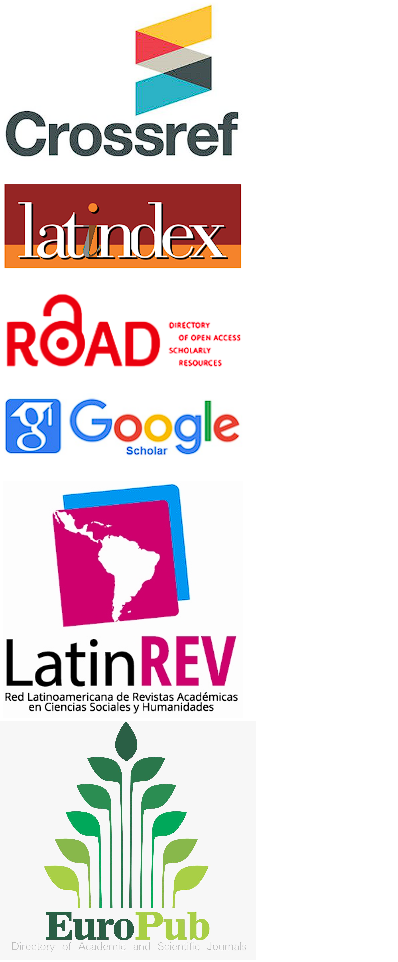Gamificación en la Educación Superior
DOI:
https://doi.org/10.58299/cisa.v5i5.59Keywords:
Learning, gamification, motivation, technology, neuroscienceAbstract
The present document is a critical documentary analysis of literature, a non-experimental research design, descriptive transactional in nature, concerning the state of 21st-century education and how technology, specifically the game in its known model as gamification, promotes enriched environments of enthusiasm. It is possible to observe the recognition of factors inherent to emotional themes as triggers for learning, with motivation as the main driving force. Furthermore, in this web of new disciplines, neuroscience and, in turn, neuroeducation and neurodidactics emerge, facilitating the understanding of how the brain works better under certain stimuli. Similarly, ICT (Information and Communication Technologies) are recognized as allies in shaping innovative education capable of awakening learning processes in a creative, dynamic, and motivating manner. The result is a comprehensive teaching process; an education that integrates play with gamification as a formative assessment process.
References
Barroso-Osuna, J., Cabero-Almenara, J., & Valencia Ortiz, R. (2020). Visiones desde la Neurociencia-Neurodidáctica para la incorporación de las TIC en los escenarios educativos. Revista de Ciencias Sociales Ambos Mundos, 1, 7-22. https://doi.org/10.14198/ambos.2020.1.2
Cabero, A. J. (2015). Reflexiones educativas sobre las tecnologías de la información y la comunicación (TIC). Revista Tecnología, Ciencia y Educación, 19–27. https://doi.org/10.51302/tce.2015.27
Chiappe, A., Ternent De S. A. M., Wills, A. E., & Restrepo U. I. (2020). La educación del siglo XXI y el despertar de las bellas durmientes: una revisión sistemática de la literatura. Education in the Knowledge Society (EKS), 21, 1-15. https://doi.org/10.14201/eks.22483
Deterding, S., Dixon, D., Khaled, R., & Nacke, L. (2011, 28 de septiembre). From game design elements to gamefulness [sesión de conferencia]. MindTrek 11 Conference on Envisioning Future Media Environments. http://dx.doi.org/10.1145/2181037.2181040
Driscoll, M. (2000). Psychology of Learning for Instruction. Allyn & Bacon.
Hamari, J., Shernoff, D. J., Rowe, E., Coller, B., Asbell-Clarke, J., & Edwards, T. (2016). Challenging games help students learn: An empirical study on engagement, flow and immersion in game-based learning. Computers in Human Behavior, 54, 170–179. https://doi.org/10.1016/j.chb.2015.07.045
Ibarra, S. M.S., Rodríguez, G. G., Boud, D., Rotsaert, T., Brown, S., Salinas, S. M.L., & Rodríguez, G. H.M. (2020). The future of assessment in Higher Education. RELIEVE, 26(1), 1-6. http://doi.org/10.7203/relieve.26.1.17323
Rackwitz, R. (2012). Why Gamification is more than just a trend. Engaginglab. https://engaginglab.wordpress.com/2012/10/08/why-gamification-is-more-than-just-a-trend/
Schunk, D. H. (1997). Teorías del aprendizaje. Pearson Educación.
Timmis, S., Broadfoot, P., Sutherland, R., & Oldfield, A. (2015). Rethinking assessment in a digital age: Opportunities, challenges and risks. British Educational Research Journal, 42(3), 454–476. https://doi.org/10.1002/berj.3215
Mora, F. (2021). Neuroeducación: Solo se puede aprender aquello que se ama. Alianza.
Morales, M., y Burgos, H. (2015). Las bondades del cerebro para su aplicación en el aula. Editorial Universidad de Santiago de Chile.
Mosquera, I. (2019, 20 de marzo). ¿Gamificas o juegas? Diferencias entre ABJ y gamificación. UNIR. https://www.unir.net/educacion/revista/gamificas-o-juegas-diferencias-entre-abj-y-gamificacion/#:~:text=A%20grandes%20rasgos%2C%20podemos%20decir,mec%C3%A1nicas%20propias%20de%20los%20juegos.
Ochoa, M. O., & Salinas, R. M. (2022). La transformación de la Educación Superior: procesos de evaluación un camino hacia la mejora continua: The transformation of Higher Education: evaluation process, path to continuous improvement. Tecnología educativa revista CONAIC, 9(2), 101-107. https://www.terc.mx/index.php/terc/article/view/252
Ortiz, C. A., Jordán, J., & Agredal, M. (2018). Gamificación en educación: Una panorámica sobre el estado de la cuestión. Educação e Pesquisa, 44(0), 1-17. https://doi.org/10.1590/s1678-4634201844173773
Organización para la Cooperación Económica y el Desarrollo. (2021). Beyond Academic Learning: First Results from the Survey of Social and Emotional Skills, OECD Publishing, Paris. https://doi.org/10.1787/92a11084-en
Pinto, G., Prolongo, M., Urreaga, J., Alcázar, V., & Calvo, A. (2019). Gamificación y Aprendizaje Basado en Juegos para Áreas STEM: Estudio del Caso de un Proyecto de Innovación Educativa. Anuario Latinoamericano de Educación Química, (33), 226-234.
Sales, K. S., & Zimmerman, E. (2003). Rules of play: Game design fundamentals. MIT Press.
Thangjai, N., & Worapun, W. (2022). Developing Inquiry Learning Characteristics of Grade 7 Students Using Integrated 5E’s of Inquiry-Based Learning and Game-Based Learning. Journal of Educational Issues, 8(1), 137-150. https://doi.org/10.5296/jei.v8i1.19547
Organización de las Naciones Unidas para la Educación, la Ciencia y la Cultura. (2021) Evaluación de habilidades socioemocionales en niños, jóvenes y adolescentes de América Latina, Marco para el trabajo del cuestionario de ERCE 2019, Documento de programa. https://unesdoc.unesco.org/ark:/48223/pf0000380240
Wang, A. & Lieberoth, A. (2016). The effect of points and audio on concentration, engagement, enjoyment, learning, motivation, and classroom dynamics using Kahoot!. Actas del 10th European conference of games based learning, Academic Conferences and Publishing International Limited (2016), Paisley, United Kingdom, 1, 738-746. https://folk.idi.ntnu.no/alfw/publications/ECGBL2016-Effect_of_points_and_audio_in_Kahoot.pdf
Wang, Y. H. (2019). Exploring the effectiveness of adopting anchor-based game learning materials to support flipped classroom activities for senior high school students. Interactive Learning Environments, 29(3), 365-384. https://doi.org/10.1080/10494820.2019.1579238
Vargas, Q. G., Sito, J. L. M., Toledo, E., S. L., Toledo E. E. S., & Mendoza, H. M. L. (2022). Evaluación formativa y las tecnologías del aprendizaje y conocimiento. Revista universidad y sociedad, 14(1), 339-348. http://scielo.sld.cu/scielo.php?script=sci_arttext&pid=S2218-36202022000100339&lng=es&tlng=es.







